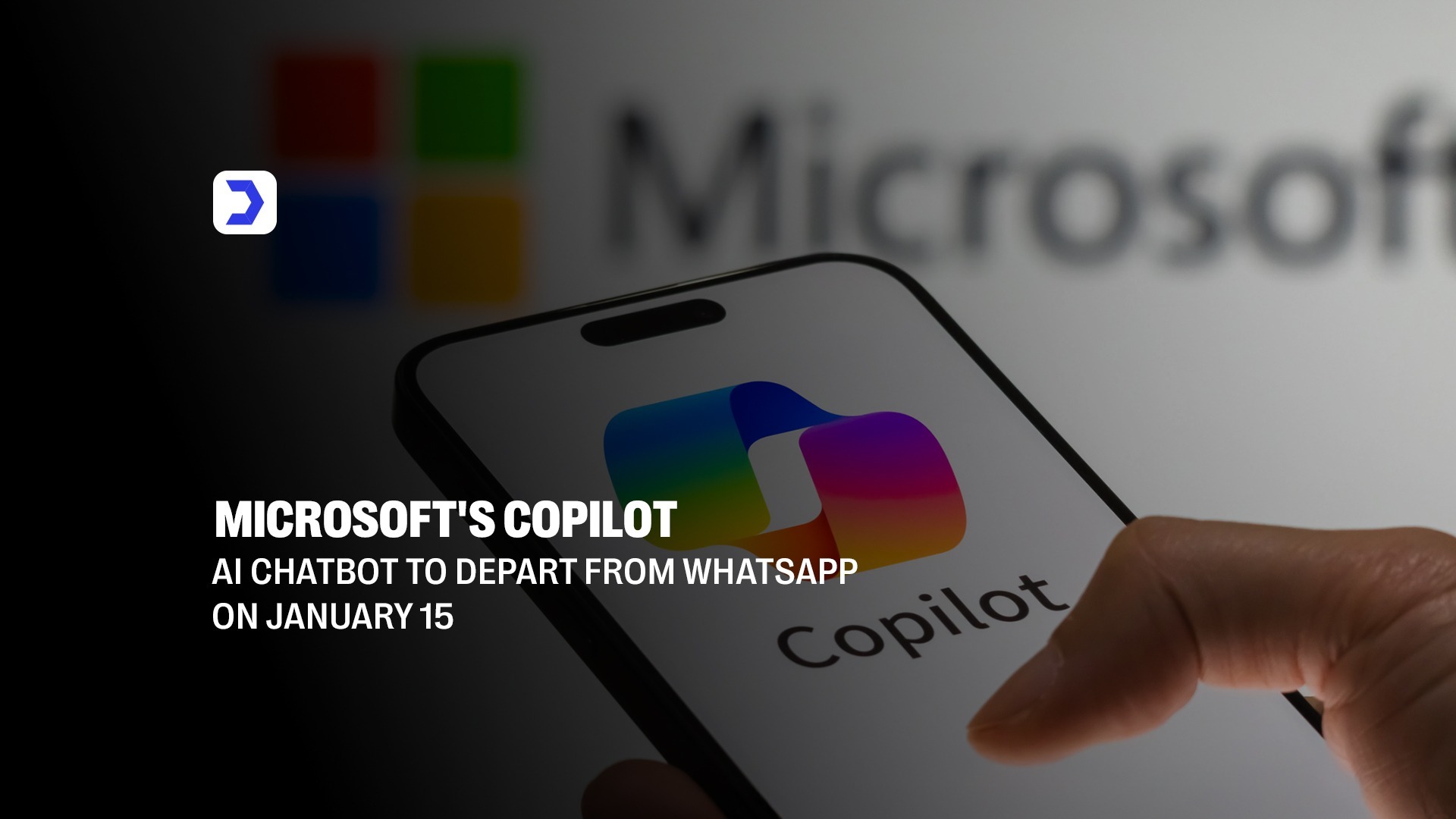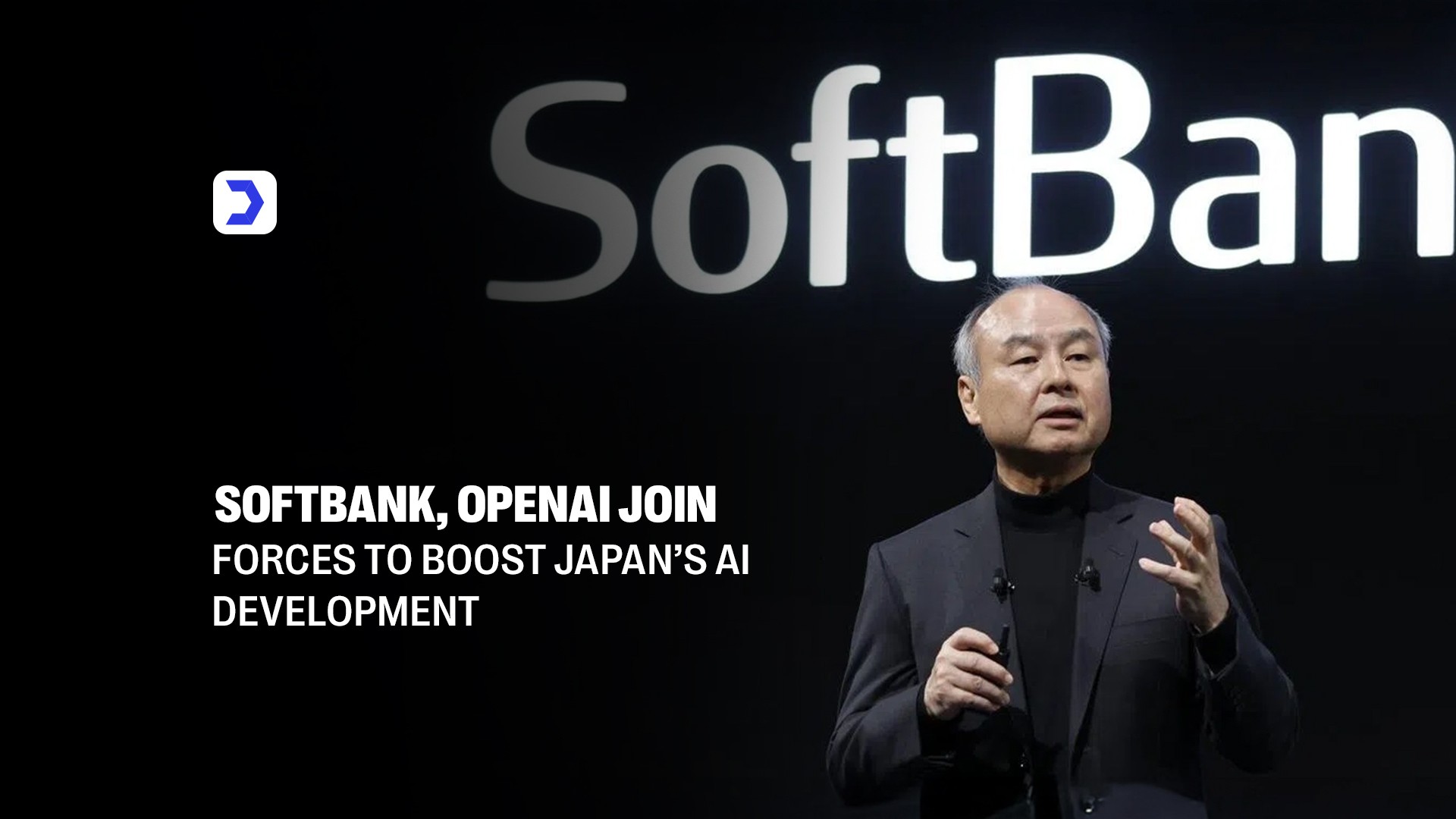Summary
- Microsoft Copilot will officially leave WhatsApp on January 15, marking a new phase focused on secure and optimized AI chatbot performance within Microsoft’s ecosystem.
- Meta’s API restrictions have influenced the transition, encouraging Microsoft to move Copilot into native Apps like Windows, Teams, and Office for stronger privacy and efficiency.
- Collaboration with OpenAI and Anthropic continues to enhance Copilot’s capabilities, integrating advanced reasoning models such as Claude for enterprise-grade intelligence.
- The shift reflects Microsoft’s dedication to ethical, compliant, and transparent AI development, aligning with global efforts to build safer and more responsible automation systems.
- The future of Copilot Microsoft lies in its deep integration across connected Apps, providing users with a unified, secure, and intelligent AI experience.
Microsoft has announced that its Copilot AI chatbot will end support for WhatsApp on January 15, signaling a major shift in how the company manages its artificial intelligence integrations. The decision comes amid ongoing changes in Meta’s API policies, which now restrict external AI systems from operating inside WhatsApp without verified partnerships.
Rather than viewing this as a setback, Copilot Microsoft is using the change to refocus its growth. The company has been restructuring how Copilot operates, moving away from third-party messaging systems and building stronger foundations within Windows, Teams, and Office. This ensures that the AI chatbot continues functioning in secure environments while maintaining the performance and accuracy users expect.
At the same time, Microsoft has been expanding its alliances with advanced AI research groups, taking steps toward multi-model collaboration that enhances Copilot’s reasoning capabilities. The company’s recent efforts toward diversifying its AI partnerships beyond OpenAI illustrate how it’s weaving new intelligence frameworks into Copilot’s core, making it more adaptable and context-aware across different use cases.
This evolution allows Copilot to operate as more than a chatbot. It’s becoming a unified AI assistant that understands workflow context, manages complex requests, and learns across multiple systems. Moving away from WhatsApp lets Microsoft optimize that experience without the limitations of external APIs, paving the way for tighter integration, smarter data handling, and consistent performance across all connected Apps.
For users, Copilot’s withdrawal might seem inconvenient at first, but it marks the start of a more intelligent ecosystem where AI works seamlessly within Microsoft’s own environment. Instead of relying on borrowed platforms, Copilot is growing into a self-sustaining system, one designed for reliability, scalability, and enterprise-level intelligence.
Why WhatsApp is Blocking AI Bots from Its API
The recent decision by WhatsApp to block AI bots from accessing its API is rooted in Meta’s effort to protect user data and preserve the intended purpose of its messaging platform. Over the past year, the number of AI chatbot integrations on WhatsApp grew rapidly, often connecting through unverified middleware that processed personal messages to deliver automated replies. While many of these bots, including Copilot Microsoft, offered helpful features like task summaries and reminders, they also raised concerns about privacy, compliance, and uncontrolled data flow within encrypted systems.
Meta’s platform relies on end-to-end encryption, which makes it difficult to manage how third-party AI systems handle message content. Allowing unrestricted access to such technology risks exposing metadata or compromising user consent. To prevent this, Meta tightened its API policy, restricting usage to verified business automation only. This move ensures that WhatsApp remains a secure environment where communication integrity comes before experimental automation.
In contrast to WhatsApp’s restrictions, the broader AI landscape continues to evolve toward safer, enterprise-grade ecosystems. Developers are shifting focus from open chat integrations to structured environments where AI systems can perform specialized operations. For instance, models like Claude have expanded capabilities beyond simple conversation, integrating features that help enterprises automate technical tasks and internal workflows. Microsoft’s shift with Copilot mirrors this approach, moving away from consumer messaging spaces and focusing on professional and collaborative Apps that allow deeper AI interaction without risking compliance breaches.
The industry is gradually transitioning from broad consumer AI deployment to tightly managed enterprise AI integration. This pattern can be seen in solutions such as Anthropic’s Claude Code, which strengthens AI performance in enterprise environments. Instead of running within closed messaging systems, AI models are being embedded in secure, purpose-built frameworks where their reasoning and automation capabilities are fully optimized.
By blocking third-party bots, Meta is setting a precedent for controlled AI deployment, one that favors transparency and user safety over open experimentation. For companies like Microsoft and Anthropic, it’s a signal to keep enhancing their AI tools for compatibility with professional ecosystems rather than casual messaging spaces. In essence, WhatsApp’s API policy isn’t just a restriction; it’s a step toward redefining where intelligent automation belongs, within trusted digital infrastructures designed for precision, scalability, and security.
Next Steps as Copilot Leaves WhatsApp
With Copilot Microsoft exiting WhatsApp, the company is already redirecting its efforts toward environments where AI can operate securely and more effectively. Rather than relying on third-party messaging APIs, Microsoft plans to integrate Copilot more deeply into its core ecosystem, across Windows, Teams, and Office Apps, where it can maintain data protection and optimize performance under its own protocols. This shift ensures that the AI chatbot continues to evolve without the restrictions imposed by Meta’s tightened API controls.
At a broader level, the move reflects a growing realization across the tech industry that AI deployment must prioritize safety, transparency, and user control. Companies have started to re-evaluate how their AI systems interact with user data, focusing on accountability and compliance. Microsoft’s pivot toward controlled integration mirrors the ongoing concerns within the AI community about unchecked system releases and the risks they pose to public trust. Conversations around safety and governance, also addressed in AI reports raising alarms over xAI’s safety culture, have highlighted the urgency of building ethical frameworks that prevent misuse or unverified deployment of generative systems.
This renewed focus on responsible AI design aligns with Microsoft’s future roadmap for Copilot, where partnerships with advanced research groups like Anthropic and OpenAI play a pivotal role. These collaborations are paving the way for AI that understands context, adapts intelligently, and operates under clearly defined security boundaries. As the company consolidates its infrastructure, Copilot Microsoft is likely to evolve into a more refined assistant, one that functions across all Apps with unified intelligence, cross-platform synchronization, and enterprise-grade safety mechanisms.
As Copilot Microsoft moves past WhatsApp, users can expect the assistant to appear in richer forms across integrated apps. The aim is to deliver a consistent AI experience that understands task patterns, manages schedules, interprets data, and learns from user behavior in secure digital environments. These advancements echo the progress shared within Digital Software Labs News, where enterprise AI continues to grow around accountability, automation, and innovation.
In essence, Microsoft’s decision isn’t just a departure from WhatsApp; it’s an advancement toward stability, safety, and sustainability in the AI era. By unifying Copilot within its ecosystem, the company is ensuring that the next generation of its AI chatbot not only assists users but does so responsibly, guided by ethical design, smart automation, and seamless enterprise connectivity.




